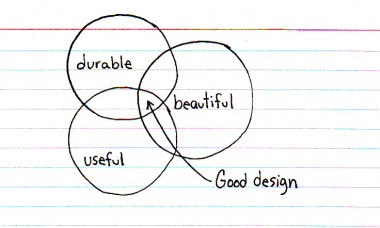I was forced to sift through thousands of memories -- most of which were school-related papers and projects. It's hard to throw things away that represent so many hours of work -- of effort. But there were also many things stuffed in plastic trunks that I've purchased in moments of retail lust (ahem, those horrendous - but trendy at the time - patchwork jeans). As I was thinking about all the things I owned and why, I stumbled across any article from treehugger.com called "Love Your Stuff":
The problem, I argued, is not that we love stuff too much—but that we don't love it enough. Why else do people swoon over the next tech gadget; the next McMansion; or the next over sized car, before becoming bored and moving on to another obsession? That's not love, it's lust. And it's a promiscuous lust at that.So as we rapidly approach the holiday (i.e. gimmie, gimmie, gimmie gifts) season, I plan to ask for -- and will try only to give -- really high quality, useful, durable, meaningful gifts. Some of the best gifts I've received over the last few years include a slow cooker and tool set. Not flashy or exciting, but I use them both on a near-weekly basis.What if we rejected these consumer equivalents of a one night stand? What if we committed to our stuff instead? What if we settled into deep and meaningful, if somewhat polygamous, relationships with our possessions? Once we make the commitment to fall in love all over again with our houses, with our clothes, with our furniture, we start looking for qualities of durability, reliability, craftsmanship, beauty and sustainability, instead of cheap thrills and shallow gimmicks. We start nurturing, nourishing and maintaining what we have, rather than looking for something new. In short, we learn to live with less.





No comments:
Post a Comment